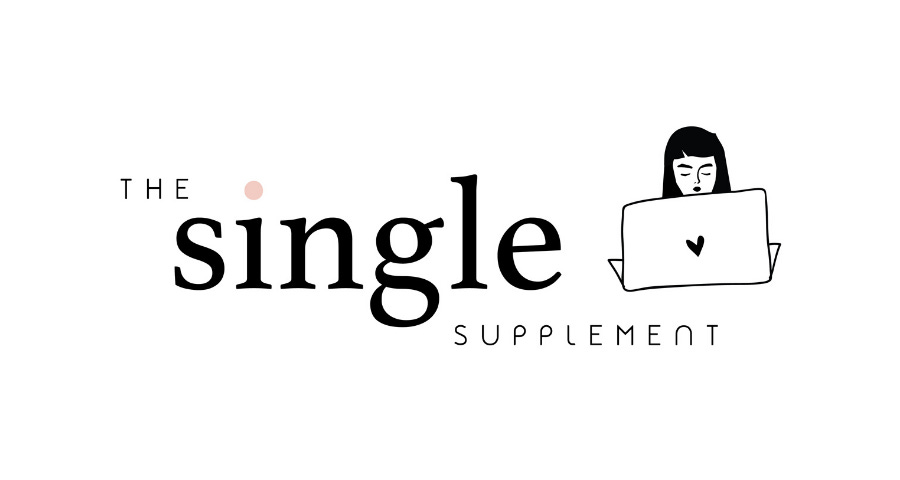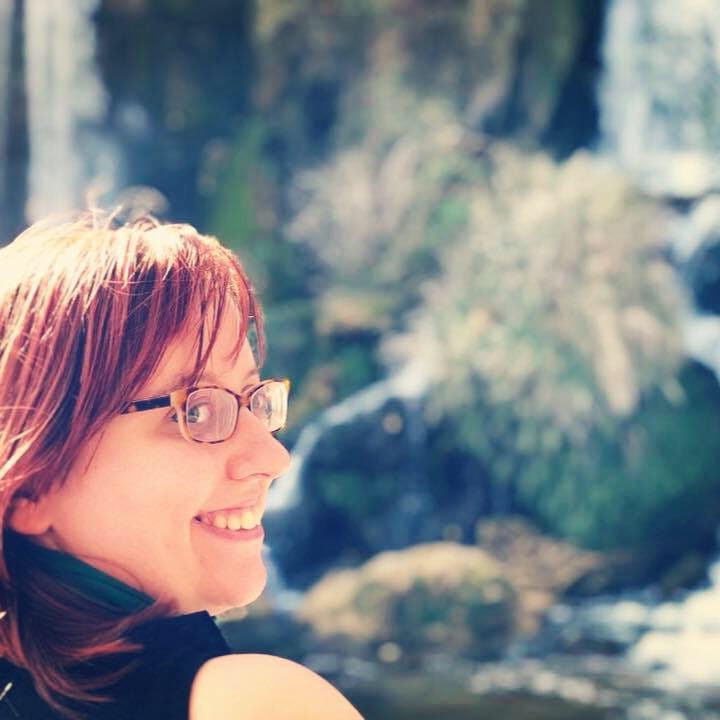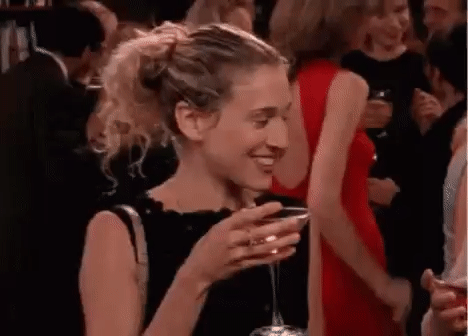 |
When you read this, I will be camping in the Shropshire countryside with two of my best friends (we have each bought our own tents to enable social distancing!) It’s basically my summer holiday this year even though it’s just for three days and I couldn’t be more excited. I was planning to be totally off my phone but I’m sure I’ll be posting the odd photo on my Instagram account.
Anyway, I have used this as an opportunity to commission my second guest writer for The Single Supplement after the success of Tola Fisher last month. Today’s guest is Kylie Noble, a journalist I’ve known for quite a few years now.
She is only 26 but has already had such an interesting life having grown up in rural Nothern Ireland and then moved to the UK and worked in loads of different sectors as well as being a journalist. I’m so glad she agreed to write today’s column for me. She has chosen to write about her second adolescence and why so many LGBT+ people end up having them.
I shall hand over to Kylie now!
Have a good week,
Nicola
Twitter: @TheSingleSupp | Instagram: @TheSingleSupplement
My second adolescence by Kylie Noble
 |
As a 26-year-old single woman, most of my peers have one or more of the following: a good job which fits with a career path, a partner, a house, a child. I have not yet met any of the standard milestones of adult life.
I have switched jobs many times, having by now worked in customer service, hospitality, marketing and health and social care. My freelance journalism has stopped and started, fitting around full-time work for the most part. I am more familiar than I would like with the benefits system. I’ve been in one three-month-long relationship, ending four years ago. I don’t want to count how much I have spent in rent since leaving home at 18. I will not be buying anytime soon. I have no children, although this is one area of life I am opting out of – I don’t want to be a mum.
The reason for all of the above? I’m bisexual and have complex mental health (I’m autistic and have ADHD, anxiety and depression). LGBT+ people are at a higher risk of poor mental health and a lower quality of life, compared to heterosexuals. This has been my experience of my late teens and early 20s. For many of my straight friends, these have been the best years of their lives – lots of fun, meeting a long-term partner, settling down and excelling in their career. Due to growing up in a conservative community in Northern Ireland (which only fully legalised abortion and same-sex marriage this year), I felt a huge amount of shame about sexuality.
I was 16, watching Woody Allen’s Vicky, Christina, Barcelona, when I discovered to my horror that I felt sexual attraction to Penelope Cruz. This did not fit with who I was permitted to be. I attended an evangelical church which opposed LGBT+ identities. At my all-girls school, the worst insult was calling someone a lesbian. I deeply buried this moment of attraction. When I was 20, a beautiful girl chatted me up in my university’s student union in Belfast. I was thrilled. But I was also very scared, and yet again, I chose to bury this truth about myself.
I couldn’t face that truth, accept, and enjoy it until I moved to London. I only started living as my full self, age 24. Whereas, straight people move through a world built for them, and never have to live in fear of what others will think about their sexuality. So this is my advice to any single LGBT+ women, feeling as I sometimes do – behind in life and that my happily ever after will never come – the norms were never made to accommodate us. We get to create our unique, messy and joyful lives. Among the LGBT+ community, an empowering idea is that of “a second adolescence.” The concept is arguably rooted in, one of the fundamental theories of gay identity development, the Cass identity model, developed in 1979.
The Cass identity model outlines six key stages that LGBT+ people are likely to go through in how they feel about their sexuality: identity confusion, identity comparison, identity tolerance, identity acceptance, identity pride and identity synthesis. Straight people will never be confused or conflicted about their sexuality, which enables a much more seamless journey into adulthood. I didn’t have sex or get into a relationship until I was 21. Huge chunks of my early 20s were consumed by depression and trying to manage my chaotic life, until being diagnosed with ADHD and as autistic, age 25. Only in the past few months, with my antidepressants doubling in their dose, do I experience a proper sex drive!
So here I am, 26 and feeling like a horny teenager, and I’m OK with that. Recently I ended a fun fling with a guy, one in which neither of us wanted more. It probably seems immature to many straight women my age. But it was so joyful; in my teens and Uni years, I never experienced anything like this. I am now dating a woman, and it’s the first time another woman has liked me, as much as I like her. It is so new and exciting.
As a queer woman, it is important to take time to explore and enjoy who you are. Try not to get hung up on achieving hetronormative life goals at the "right" time. Finding yourself is more important than finding “the one.”
Kylie Noble is a freelance journalist from Ireland living in Yorkshire. She specialises in feature and opinion writing for national and international publications. She is a Scott Trust alum. You can follow her on Twitter here.
Huge thanks to Kylie for that deeply personal essay. I feel embarrassed to admit that I hadn’t ever thought too much about how, as a straight person, the world is designed for me and therefore it makes it easier to move through it but of course it is. This has really made me think about my privilege in that respect. I particularly love this line and think it also relates to all of us long-term single people as well: “We get to create our unique, messy and joyful lives.”
What caught my attention
How to Fail: Bernardine Evaristo
I couldn’t resist including this fab podcast episode, especially as Girl, Woman, Other was such a great book club book. I loved this quote which was in answer to Elizabeth Day asking if she believes it’s never too late to change your life? Bernardine says: “Oh god yes, absolutely! I think we’re living in a culture where if you’re not achieving or living a certain kind of life by the time you’re 30 or 40 then it’s over for you. But that’s nonsense, because, actually, as human beings we are constantly evolving and also changing … I think if we’re open to [the] infinite possibilities of who we are then we are also open to changing. Life is very exciting and it’s an adventure so I definitely feel that we shouldn’t be bound by age…”
‘I Feel Ashamed of Almost Everything’
I had all the feels reading this letter. The writer is 30 and single after a break up with a guy she thought she would marry and have kids with. The letter isn’t really about that though. It’s about being unhappy. She writes: “I feel like a plant that needs damp soil and not too much direct sunlight, but instead I’ve been planted in the desert. It’s too bright and dry and sandy here, and there’s too much glare and not enough shade … I know you read this kind of thing all the time, and I feel self-indulgent and pathetic even acknowledging the extent of how bad I feel about everything right now. I do believe that I won’t feel like this forever. But currently I just can’t see how to get from here to there.”
I loved this week’s newsletter by my pal Tiffany Philippou. I too also feel most lonely when I’m hungover. I think it’s partly because of the funniest memories I have of being with my ex was when we were both disgustlingly hungover. Anyway, I digress. The whole thing is worth a read but this paragraph stood out to me: “I always thought that the rule that you shouldn’t have sex with someone before the third date was puritanical dating advice which positioned sex as something that women should use as a weapon rather than something we may enjoy, but in this new world, I’d argue that waiting is essential. And because going home together after a first date has a whole new layer to it in our socially distanced world, the ones who are pushing for it because they’re only there for the one-night thing can reveal themselves to you much earlier.”
The lowdown
This week’s newsletter would not have been possible if it wasn’t for those who have chosen to financially support this newsletter. I really hope to be able to commission other writers as well as illustrators and you can help by subscribing for just £1 a week. From August, subscribers will get an extra email during the mid-week to enjoy so make sure you sign up now so you don’t miss out on the extra content.
I’m excited to say I’ve been named as one of the 80 best single-operator newsletter writers by Inside Hook, which is a US publication (and one of four in the sub-category of women’s interest). By the way, when they say single-operator, they mean someone who writes a newsletter on their own in case you thought what I thought originally and that they were all newsletters about being single.
Tiffany and I have just announced the second in our series of masterclasses about life writing. This time we’ll be going into more depth about pitching and coming up with new story ideas. As Tiff said in her newsletter, Marian Keyes has shared the class on Twitter, so we got her seal of approval! You can book it here. We are also doing the first masterclass again as it sold out so if you missed it in June, book here.
I have written about my new-found love for my bike thanks to lockdown in this newsletter and now I have written a reported feature for the Evening Standard about the benefits and why we should all stay on our bikes. I know I wasn’t alone in digging out an old bike so some of you might find that interesting.
About me
For those who don’t know, I’m Nicola Slawson, a freelance journalist who lives in Shropshire, UK. If you would like to support what I do, please consider subscribing to be a paid supporter of The Single Supplement. Follow me on Instagram and Twitter.
Did someone forward The Single Supplement to you? Subscribe here.


